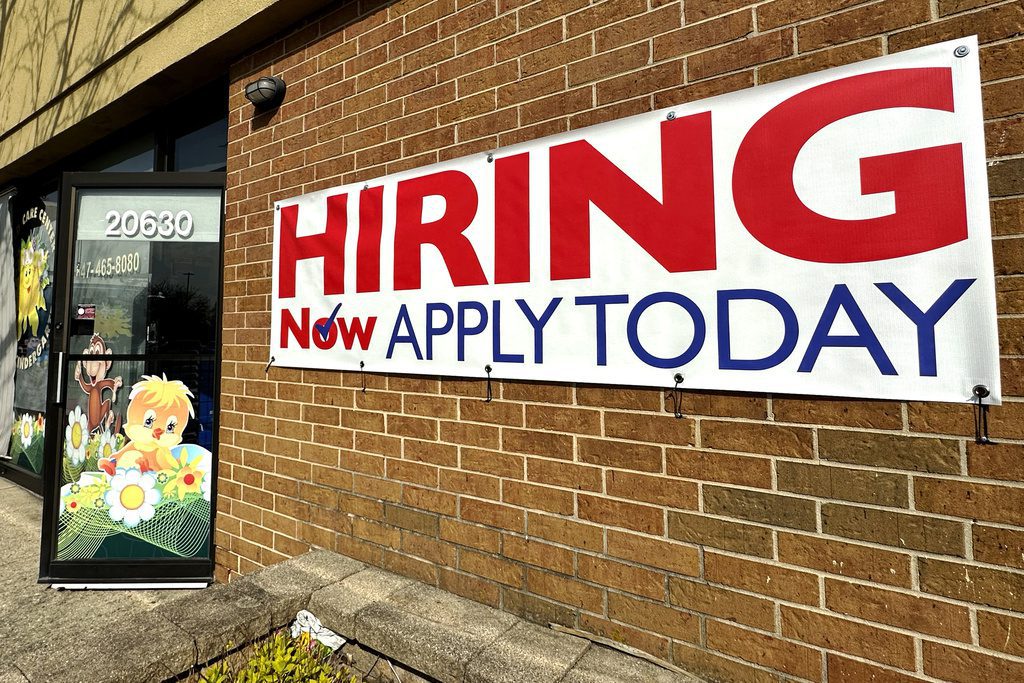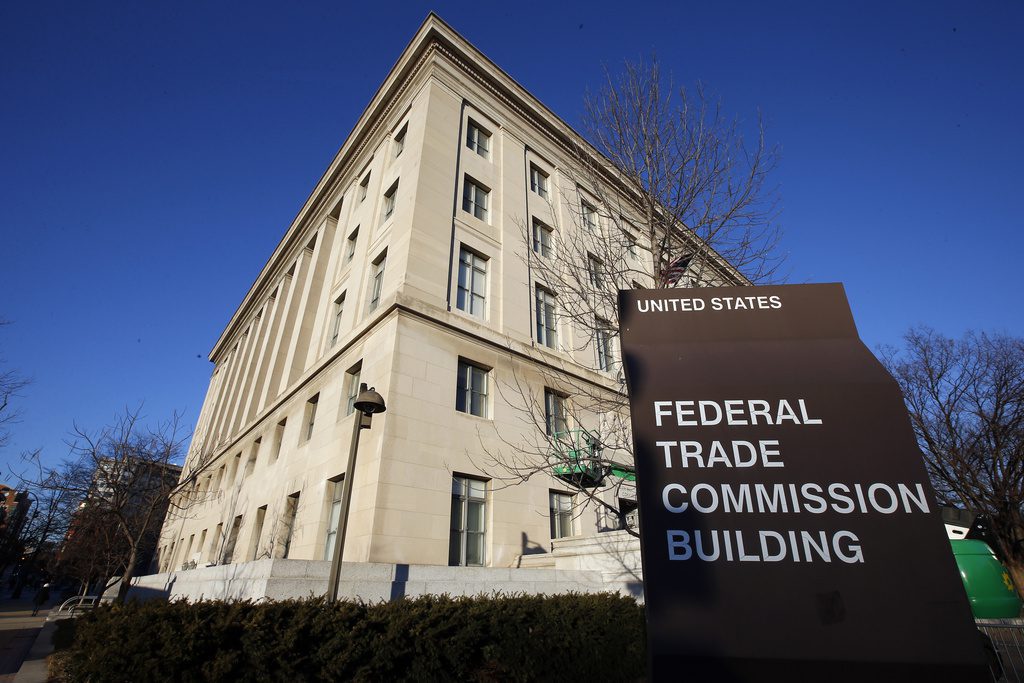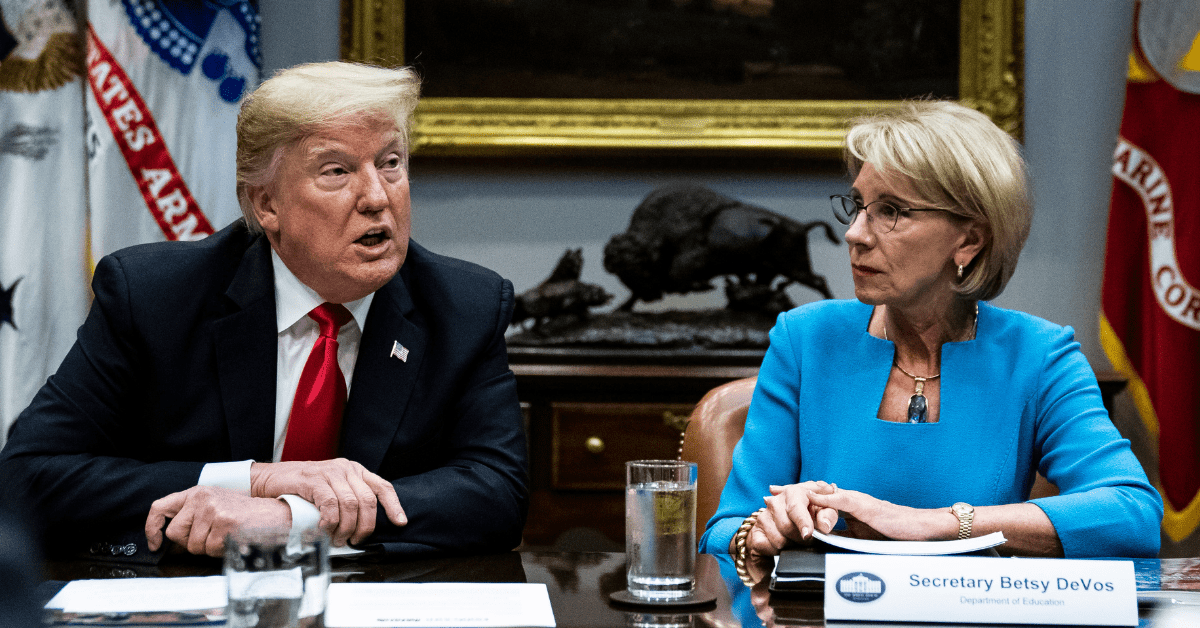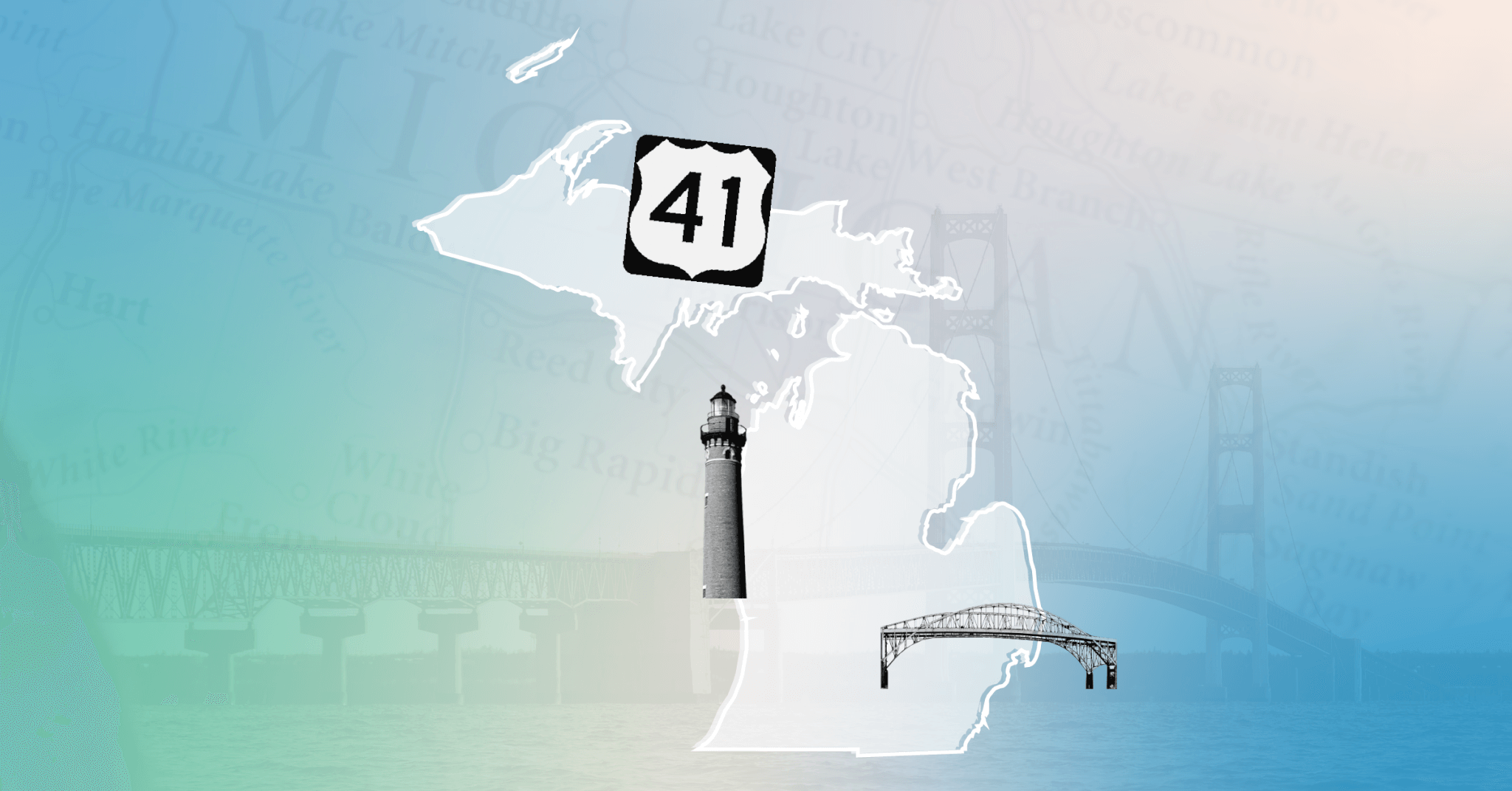
In 2021, President Biden signed the historic $1 trillion infrastructure bill into law, delivering on a key piece of his economic agenda. Since then, billions of dollars have been funneled into all 50 states in order to upgrade highways, transit systems, water systems, and more.
In Michigan, $5.2 billion in funding has been announced so far, and more is on the way. Here’s a look at the work that’s being done in the Great Lakes State and how it helps Michiganders.
Roads, Bridges, and Public Transit
In Michigan, there are 1219 bridges and over 7,345 miles of highway in poor condition. Over $3 billion in funding from the law has been allocated to Michigan roads, bridges, roadway safety, and other major projects as of March. This includes $2.8 billion in highway formula funding and $243.3 million in dedicated formula funding for bridges in 2022 and 2023.
It’s estimated that Michigan’s deteriorated roads and bridges cost drivers almost $5,000 per year in repairs, according to a report from TRIP, a national transportation research nonprofit.
One effort aimed at improving Michigan’s roads and bridges is the RAISE program. Grants awarded through this program “help project sponsors at the state and local levels, including municipalities, tribal governments, counties, and others complete critical freight and passenger transportation infrastructure projects.”
So far, $52.1 million has been awarded to Michigan through this program.
One project being funded by the program is the redesign of the Downtown Kalamazoo Transportation Network. The goal of this project is to make the area more walkable, based upon a complete streets design, including converting Kalamazoo Avenue from a one-way street to a two-way.
Michigan is also getting funds from the INFRA program, which awards grants for freight and highway projects.
The I-375 Community Reconnection Project will be using some of those funds. The Michigan Department of Transportation plans to convert the freeway in Detroit to a “street-level boulevard.” Construction is set to begin in 2025.
Michigan has also been allocated $198.1 million to improve public transportation options across the state in fiscal years 2022 and 2023. Currently, 16% of public transit vehicles in the state are past useful life. This funding will most directly affect non-white households, which are 5.6 times more likely to commute via public transportation in the state of Michigan.
Clean Buses, Energy, and Power
The infrastructure law is also set to invest billions of dollars into clean public transit and school buses over the next five years. Half of that money will be used to replace existing school buses with zero-emission and low-emission models.
To date, Michigan has been awarded $54.1 million from the Environmental Protection Agency’s Clean School Bus Program, which provides school districts rebates to replace existing school buses. Twenty-five school districts in Michigan received grants thanks to the program, including Pellston Public Schools and Britton Deerfield Schools.
The Michigan Department of Transportation, along with other public transit entities in the state, were also separately awarded $4.5 million to improve bus service and clean transit buses through the Department of Transportation’s Low or No Emission Vehicle Program.
The infrastructure law is also set to upgrade the power infrastructure by “making the grid more resilient and building thousands of miles of new transmission lines to deliver clean, affordable electricity.” There’s additional funding to weatherize homes to improve their energy efficiency. This would lower energy costs for impacted households by an average of $372 per year, according to the Department of Energy.
Airports, Ports, and Waterways
To date, Michigan has received approximately $136.8 million for replacing and modernizing airport infrastructure at airports, including the Detroit Metropolitan Wayne County Airport, the Gerald R. Ford International Airport, and the Bishop International Airport.
The state’s ports and waterways are also in dire need of investment. Roughly $780.5 million has been allocated to Michigan so far so that the state can address maintenance backlogs and reduce congestion and emissions near ports, such as the Lafarge Alpena Port. Ultimately, this will help the U.S. move goods more quickly, at a lower cost.
Water
There’s no arguing that clean drinking water is essential. The Bipartisan Infrastructure Law represents the largest investment in clean drinking water in American history, including the first-ever dedicated federal funding to replace lead service lines and address dangerous PFAS chemicals, according to the White House.
As of March, $250 million in funds have been allocated for Michigan to provide residents with clean and safe drinking water through the Environmental Protection Agency (EPA).
Nearly 28% of these funds are going towards lead pipe and service line replacement throughout the state. According to the National Resources Defense Council, there are roughly 460,000 lead service lines in the state of Michigan.
Another $44.2 million will go towards safe drinking water investments.
Internet
An estimated 1.24 million Michigan households, or 31.5%, do not have a permanent, fixed internet connection at home, according to the Benton Institute for Broadband & Society. Under Biden’s infrastructure law, Michigan will receive a minimum allocation of $100 million to help ensure high-speed internet access across the state.
Experts also estimate that 1.6 million households in Michigan are eligible for the Affordable Connectivity Program (ACP), although only 609,254 households are enrolled so far. This program cuts internet bills by up to $30 per month, or $75 for households on tribal lands. It also provides a one-time $100 discount off a connected device.
In addition to the above measures, the Biden administration is working with internet providers to offer high-speed internet plans that are fully covered by the ACP. This means that most eligible households in Michigan would be able to get high-speed internet for free.
Electric Vehicles
Electric vehicles are quickly becoming a way of life for many Americans. While just 7% of U.S. adults say they currently own an electric or hybrid vehicle, according to the Pew Research Center, about 39% of Americans say that the next time they purchase a vehicle, they are at least somewhat likely to seriously consider electric.
The infrastructure law has so far allocated $39.7 million in 2022 and 2023 to Michigan to build out a network of EV chargers across the state.
Michigan can also expect to receive roughly $110 million over five years to support the expansion of electric vehicle charging.
Resilience and Legacy Pollution Cleanup
More broadly, one of the main aims of the Bipartisan Infrastructure Bill is to address the climate crisis. Thousands of former industrial, chemical, and energy sites emit harmful pollutants into surrounding communities across the country and disproportionately impact communities of color.
The infrastructure law is set to reclaim abandoned mines, cap orphaned oil and gas wells, and clean up Superfund sites, which are areas that have been contaminated by hazardous waste being dumped, left out in the open, or otherwise improperly managed.
As of March, 65 sites in Michigan were listed on the Superfund National Priority List. In 2021, the EPA announced that four Michigan Superfund sites—the Tar Lake site in Mancelona Township, the Charlevoix Municipal Well in Charlevoix, the Ten-Mile Drain site in St. Clair Shores, and the Velsicol Burn Pit in St. Louis—would receive funding through the Bipartisan Infrastructure Law.
To date, Michigan has been allocated approximately $128.2 million for improving “infrastructure resilience.” This investment will help the state work against pressing challenges like the impacts of climate change, extreme weather events, and more.
Politics

Biden administration bans noncompete clauses for workers
The Federal Trade Commission (FTC) voted on Tuesday to ban noncompete agreements—those pesky clauses that employers often force their workers to...
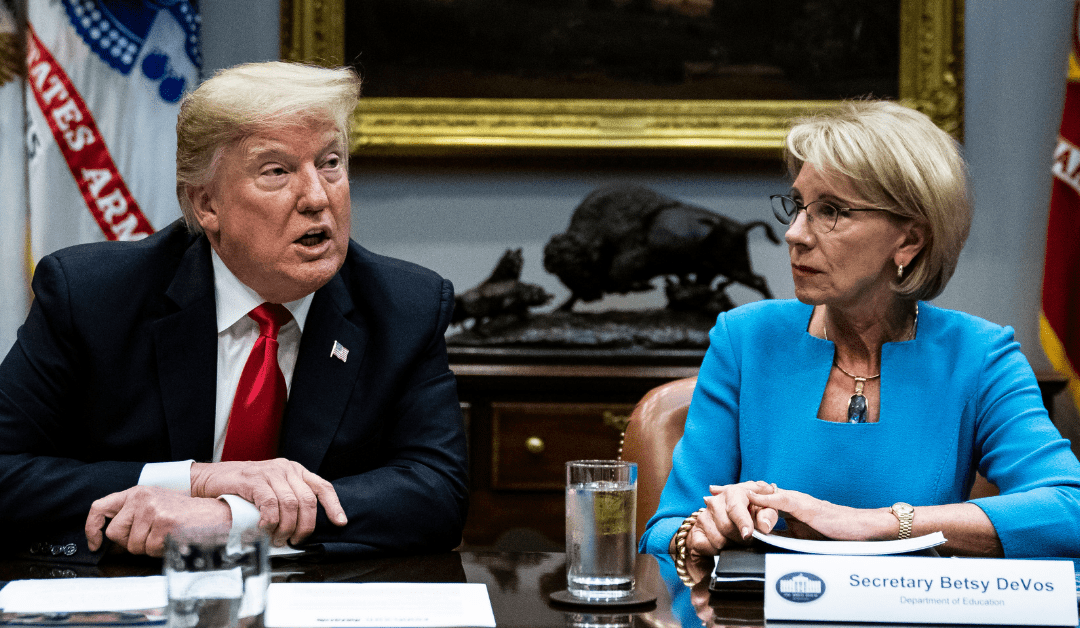
Remember Betsy? Michigan education leaders blast Trump for ‘abandoning’ public schools
Michigan lawmakers and teachers are rallying behind President Joe Biden—and reflecting on a rough period for public schools after Trump put Betsy...

Michigan Dems announce bills banning PFAS in household products
BY SUSAN J. DEMAS, MICHIGAN ADVANCE MICHIGAN—Two Democratic House members on Monday announced they are sponsoring legislation that would eventually...
Local News
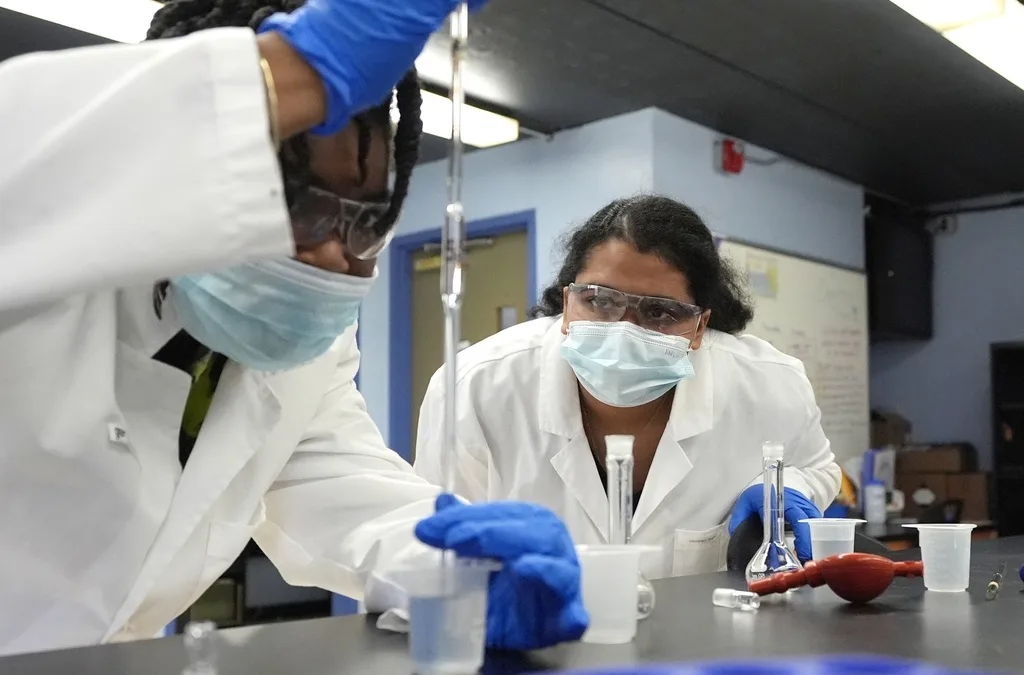
Children of Flint water crisis make change as young environmental and health activists
FLINT—Their childhood memories are still vivid: warnings against drinking or cooking with tap water, enduring long lines for cases of water, washing...
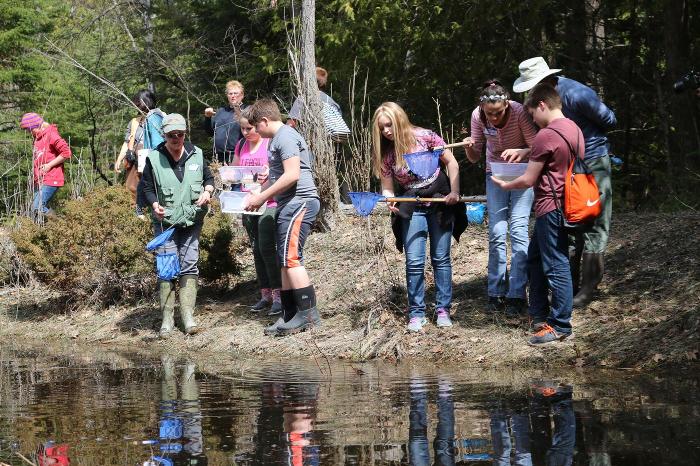
These students are protecting the ‘coral reefs’ of Michigan—and you can too
Vernal pools are a critical part of Michigan’s natural ecosystem—but they’re not protected by state regulations. Here’s how Michiganders are...



